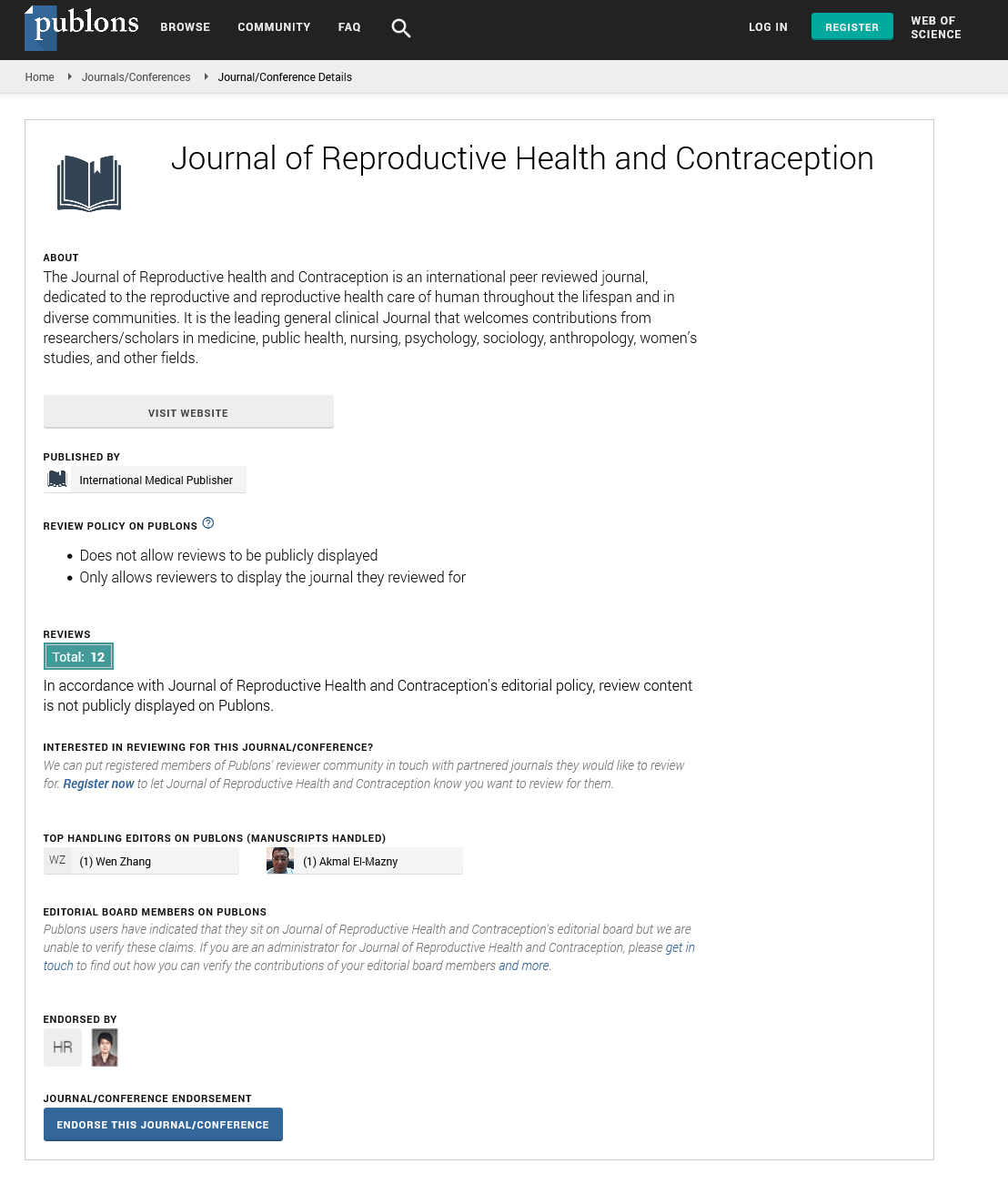ISSN : 2471-9749
Journal of Reproductive Health and Contraception
FGM a Religio-cultural sensitive issues and maternal health care choices among Somali women in Dadaab refugee camp, Kenya
International Congress on Midwifery and Maternal health - May Webinar
May 19-20, 2021 | Webinar
Josephine W Gitome
Kenyatta University, Kenya
ScientificTracks Abstracts: J Contracept Stud
Abstract
Problem statement: A major cultural practice on Somali mothers which affect deliveries is Female Genital Mutilation (FGM). UNHCR (2010) Dadaab Study concluded that female circumcision is a major reason why women die during delivery. Ninety eight percent Somali women in Kenya go through female circumcision (NCAPD Policy Beliefs: 2010) and 80 percent get infibulation. The challenge is aggravated by the fact that health providers may not be fully prepared to address deliveries complicated by religio cultural context inhibitions. The Purpose of this study: is to discuss the process of getting maternal health care for mothers who have gone through FGM. The level of preparedness of the midwives to handle FGM type 3 and other religio cultural concerns will be investigated. Methodology & Theoretical orientation: A qualitative study involving Snowballing method of sampling, in-depth interviews and focus group discussions (FGDs) which brought out pertinent issues that makes traditional birth attendants (TBAs) the preferential option for some mothers in Dadaab IFO Refugee camp. Findings: A certain number of Somali mothers seek the assistance of TBAs’ in spite of the presence of UNHCR level 4 category hospitals. In situation of birth complications, the mother choice for TBA assistance delays the family decision to take her to hospital making it difficult for health care workers to eventually save mother and child. The midwives training may not have effectively addressed FGM as social cultural sensitive issues affecting child birth and care. Conclusion & Significance: Women who have gone through FGM experience complications during delivery. The shortage of midwives and the presence of male midwives in hospitals make some Somali mothers to seek assistance from TBAs to their detriment in case of need for surgery. Recommendation: There is need to contextualize midwifery training by enhancing the curriculum with evidence based /mother centered skills.
Biography
Josephine Gitome has a PhD in Pastoral Adolescent care and counseling, her passion is in holistic pastoral care psychology. Her current focus is in improving refugee healthcare being a prerequisite of livelihood and education. She is the founding Director of Kenyatta University Dadaab Campus and Director in KU, Centre for Refugee Studies & Empowerment (2012-2018). She is currently participating as CO Principal Investigator in migrant mother’s maternal health care and digital network project. The innovative project is in collaboration with Black Rhino Virtual reality Co Ltd and Newcastle University seeking to create a virtual reality toolkit that can be used in midwifery classes to create awareness of some migrant and marginalized mothers’ healthcare concerns and perceptions.
Google Scholar citation report
Citations : 201
Journal of Reproductive Health and Contraception received 201 citations as per Google Scholar report
Journal of Reproductive Health and Contraception peer review process verified at publons
Abstracted/Indexed in
- Google Scholar
- China National Knowledge Infrastructure (CNKI)
- WorldCat
- Publons
Open Access Journals
- Aquaculture & Veterinary Science
- Chemistry & Chemical Sciences
- Clinical Sciences
- Engineering
- General Science
- Genetics & Molecular Biology
- Health Care & Nursing
- Immunology & Microbiology
- Materials Science
- Mathematics & Physics
- Medical Sciences
- Neurology & Psychiatry
- Oncology & Cancer Science
- Pharmaceutical Sciences
